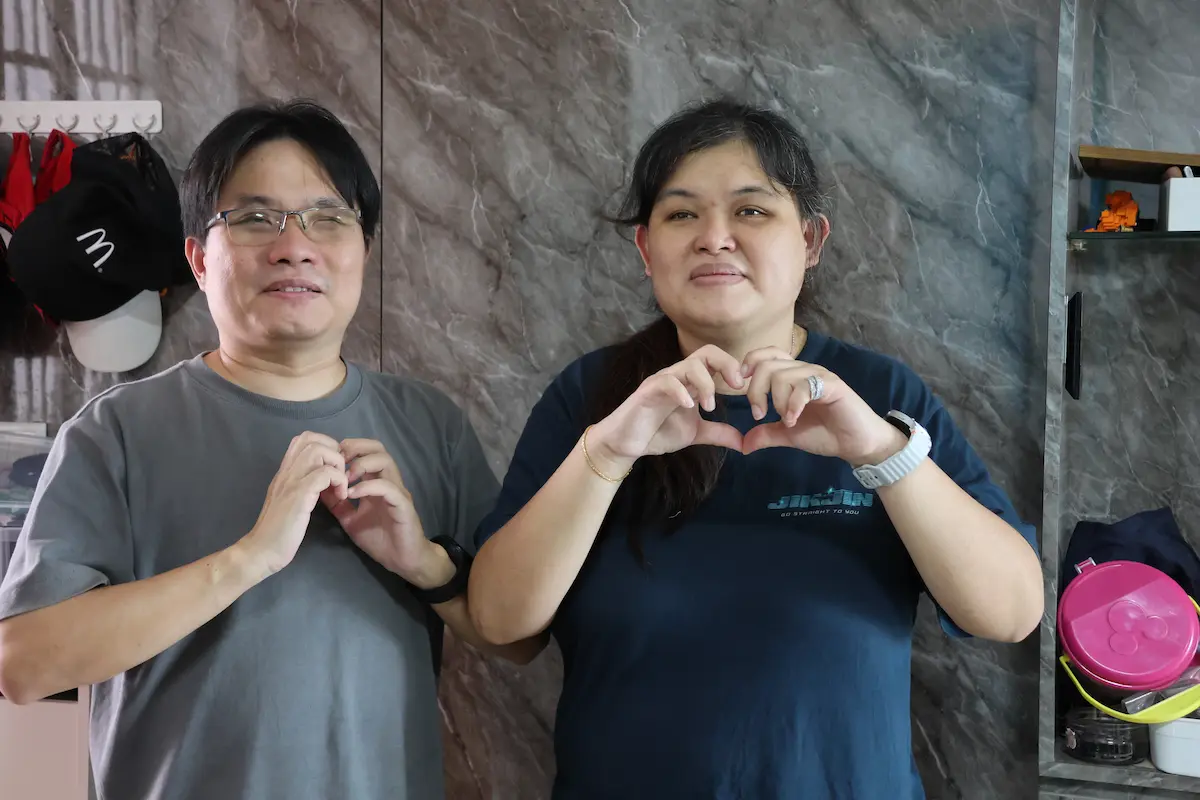Navigating a Loved One's Dementia

Taking on the role of a caregiver can be fulfilling yet emotionally demanding. The challenges faced by caregivers are multifaceted, encompassing understanding a loved one's condition, managing its symptoms, sacrificing personal time and energy, and dealing with a myriad of emotions ranging from anxiety, guilt, grief, fear, to even joy. While the caregiving journey can feel lonely and overwhelming at times, it also offers opportunities for growth, resilience, and the strengthening of family bonds.
If you're responsible for looking after a loved one with dementia, TOUCH Caregivers Support offers valuable insights and tips to help you navigate this journey with compassion and understanding.
Caregiving experiences are often cyclical and not a linear transition from one stage to another, and it’s normal to experience more than one emotion at any one time. Understanding the unique challenges and experiences at different stages can help you become more emotionally self-aware.
The three stages of emotions experienced by caregivers are presented in the infographic below.

Next, let’s delve into what dementia is and how this condition affects individuals.
Dementia is a disorder of the brain that gradually impairs a person's memory and cognitive abilities, such as thinking, reasoning, learning, problem-solving, and decision-making [1]. As the condition worsens, it can significantly impact a person's daily activities, work performance, and social interactions. On top of that, dementia can lead to significant behavioural changes, with patients experiencing a variety of symptoms throughout the early, middle, and advanced stages.
The common behavioural symptoms that may occur during the early, middle, and advanced stages of dementia are presented in the infographic below.

So, how do you navigate the journey of caring for a loved one with dementia? Here are some tips.
Keep to a routine and help them with everyday tasks: As their dementia progresses, your loved one may require increasing assistance with daily living activities, such as bathing, eating and dressing [2]. Establishing and maintaining a regular routine for daily activities can help ease the transition and make your loved one feel more comfortable and in control. Make sure to serve meals in a consistent, familiar place and allow ample time for your loved one to finish their food.
Offer reassurance and empathy: Individuals with dementia may experience feelings of agitation, anxiety, or even anger. In some cases, dementia can affect their language skills, making it difficult to find the right words or communicate effectively [2]. While it's natural to get frustrated or impatient, remember that these changes are a result of the condition. To improve communication, try to speak calmly and slowly, listen to your loved one’s concerns, and show empathy for their emotions.
Adopt a healthy lifestyle: Maintaining a healthy diet and staying active can become challenging for individuals with dementia. Despite it being challenging, it's important to encourage your loved one to eat healthily and engage in physical activity. Explore activities your loved one used to find fun, like household chores they can manage, simple exercises, or gardening. Play a supportive role by encouraging your loved one to get started and join them to make the experience more enjoyable.
Stay organised with caregiving tasks and appointments: Develop a detailed plan outlining your loved one's daily routine, medical appointments, medications, and other essential information. By staying organised, you can reduce stress, improve efficiency, and ensure that your loved one's needs are met. Delegate to your family or friends by involving them with specific tasks such as meal preparation, laundry, or transportation. Consider tapping on technology by using caregiving apps, online tools, or digital assistants to streamline your tasks and stay organised.
Practise self-care: Taking care of yourself, both physically and emotionally, is essential for your well-being as a caregiver. Experiment with different self-care activities to discover the most effective ways to manage stress, maintain energy levels, and enhance your overall quality of life. The demands of caregiving can be physically and emotionally taxing, so make sure to prioritise your well-being.
The community offers a wide range of services to support caregivers and alleviate the burdens of caregiving. Here are some options offered by the Agency for Integrated Care:
- Links Locations: This service is available to assist caregivers in identifying the right care needed and referring them to subsidised services.
- Night Respites: This service offers overnight respite option for caregivers, giving them a much-needed break from nighttime responsibilities.
- Elder-Sitting: This service provides in-home care to assist caregivers for a minimum of 2 hours, allowing caregivers to attend to personal needs or take a break.
As a caregiver, remember that it’s crucial to prioritise your well-being and seek support before you reach a point of burnout. Do not hesitate to reach out to services like Dementia Singapore Support Group and Caregivers Alliance LimitedC2C Dementia Programme for valuable resources and emotional support. If you need assistance in choosing a suitable service or simply require a listening ear, you can call the TOUCH Careline at 68046555 to speak with a care coordinator.
Have any questions on caregiving or want to find out more about caregiver-related support and services? Visit https://www.touch.org.sg/get-assistance/caregivers.html today.
TOUCH Caregivers Support (TCG) envisions a community in which caregivers, together with their loved ones, are empowered to live well. It aims to do this by caring for the carer, while building a care network around the family, to build confidence and strengthen support. By focusing on the individual’s strength and taking a family-centred approach, TCG will strive to improve care sustainability, enabling caregivers to enjoy a better quality of life. To help caregivers cope with the challenges of caregiving, TCG provides a range of care resources, including helplines, home modification schemes, caregiver training and online community support. As an advocate for caregivers, TCG also conducts talks and webinars, and shares insights on media platforms to empower and further support caregivers on their journey.
Sources
1. “Your Guide to Understanding Dementia” Health Hub, https://www.healthhub.sg/live-healthy/yourguidetounderstandingdementia_pdf
2. “Tips for Caregivers and Families of People with Dementia” Alzheimers.gov, https://www.alzheimers.gov/life-with-dementia/tips-caregivers


